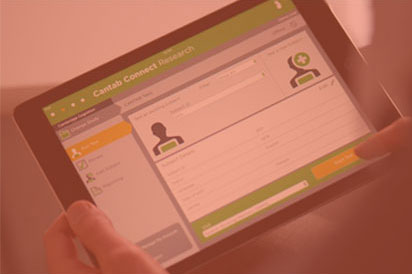Cambridge Cognition Holdings PLC (LON:COG) Chief Executive Officer Dr. Steven Powell caught up with DirectorsTalk for an exclusive interview to discuss their interim results, the reasoning behind the change in sales mix, the Innovate UK grant and the outlook for 2017 and 2018.
Q1: Steven, half-year report out, you’ve continued to deliver progress in the first half, could you explain the background to these results?
A1: What we have been working towards, over the course of the last 18-24 months is not only growing revenues but also growing and changing the mix of where those revenues are derived from.
So, historically, revenues have been a mix of software and hardware but following a key change to our product, some 2.5 years ago when we moved our product over onto a cloud-based platform, what we’ve been gradually doing is moving to a point where hardware is a diminishing part of our sales mix. Given the logistical implications and also the margin implications, that’s a good thing and moving over, not just to software but also to software and services so more of a SaaS model using our neuroscience base to really provide services.
In the half -year results, what you’ll see is a very significant increase in that service-based income and a continuing reduction in hardware sales so it is very much in line with the plan that we set out to implement a couple of years ago.
Q2: As you point out, the breakdown of the sales mix has changed over the period, what was the reasoning behind this?
A2: This has been part of an overall direction of travel which is to move from clinical bench-based testing to be able to move testing closer and nearer to patients and subjects within clinical trials so that more subjects can be tested or assessed using our products.
The first step in that direction was the implementation of a cloud-based platform, which I talked about previously, and now increasingly we’ve moved a number of our tests onto both web-based and also wearable technology so that more data points can be collected per subject. Subjects can perform this testing in the comfort of their own homes without having to travel to central clinical sites which has both subject and patient benefits as well as economic benefits.
It was a trend that was really adopted quite quickly by a number of larger pharmaceutical companies and therefore has driven the collaborative service part of our revenue mix over the course of the last 6-9 months.
Q3: Is Cambridge Cognition typically second half weighted?
A3: Not entirely, the product sales more than service are derived from both pharmaceutical and academic users. A number of our academic users operate on a grant cycle and that does tend to be second half weighted, the pharmaceutical customers, who make up the vast majority of our user base and are the larger users in terms of revenue quantum, they’re not particularly seasonal, it just appears that a number of clinical trials do start off in the second half of the year, having been planned through the first half but it’s not particularly seasonal.
Q4: You’ve recently secured a £300,000 grant with Innovate UK to develop a novel digital health system, what is the significance of this?
A4: It’s highly significant for a number of clinical areas that are of increasing significance, it’s also technically a very significant area for Cambridge Cognition. Our tests, as I’ve just described, are performed either on iPad type devices or on wearable type devices and are dependent upon a touchscreen interaction between computer and subject. What we’re looking at here, with the voice-based recognition, is the ability to move away from that touchscreen and also to be able to assess and monitor patients in a very different way.
Why and what we’re doing is really loading subjects with emotional and cognitive tasks and then measuring their response through their voice patterns. So, it’s a very different approach but it’s very significant for clinical areas such as depression, traumatic brain injury, a number of particular brain health problems and we believe these can be better assessed using voice rather than physical screen interaction.
Q5: What is the outlook like for Cambridge Cognition Holdings PLC for the rest of the year and going into 2018?
A5: Well, we invested quite heavily in our commercial infrastructure, as I think we said in our interim report, and we would expect to start to see the benefits of that and indeed we’ve already seen that through the enhanced and increased sales pipeline. The next step is to start converting that pipeline into sales and we expect to see that happening through the second half of the year into 2018 so therefore we’re looking for continued sales growth. We’re also expecting to see a number of partnerships formed around some of the newer technologies, not so much the voice work, that’s still quite an early stage and at least 12 months off partnering, but some of the other things that we’ve doing were around web-based testing and wearables. We expect to realise revenue from those towards the end of this year and early 2018 as well so one of continued commercial growth.







































